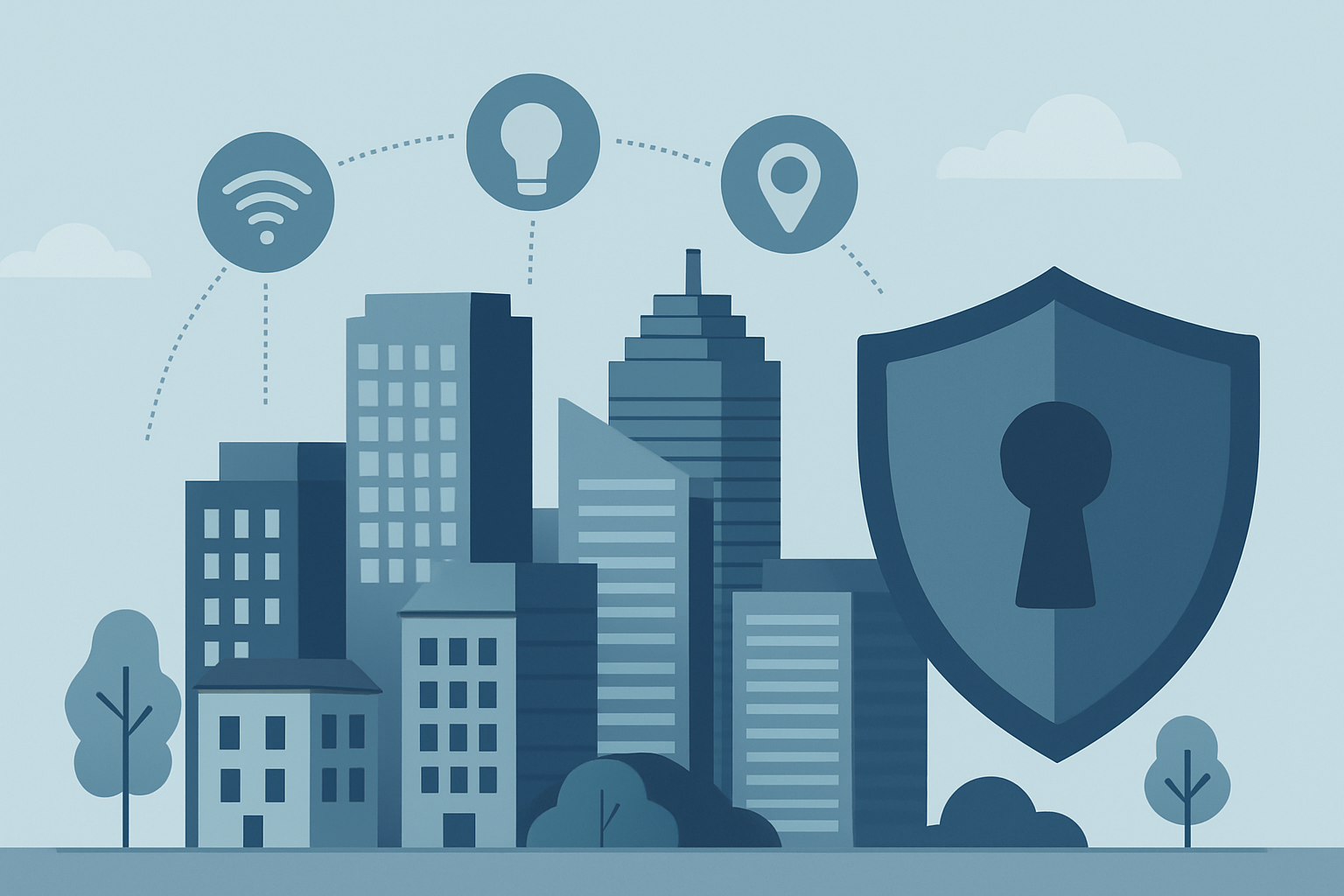

As cities across Europe work to become more climate-neutral and inclusive, the UP2030 project is leading a bold transformation in how urban spaces are designed and experienced. By combining digital innovation with community-driven design, UP2030 envisions cities that are smarter, greener, and more responsive to citizens' needs.
But digital transformation doesn't come without challenges, especially when it comes to data. Smart city initiatives increasingly depend on the collection and analysis of data to improve urban systems and services. In this context, privacy isn't just a legal requirement - it's a foundation for building public trust and ensuring that innovation remains inclusive, transparent, and responsible.
Your Data, Your Rights: Why Data Protection Matters
Data protection refers to the procedures and measures that ensure information is handled securely, respectfully, and responsibly. It involves clear processes and safeguards that govern how data is collected, used, stored, and shared - especially when that data can identify someone, such as their name, location, contact details, or images.
At its core, data protection supports a much broader principle: the right to privacy. In a digital society, where more aspects of daily life involve data, privacy ensures individuals remain in control of their personal information. It protects people from unwanted exposure, builds transparency, and creates systems worthy of public trust. When data is misused, whether by accident or design, it can seriously undermine that trust. That’s why strong data protection is about more than just technical fixes - it’s about setting a standard for fairness, accountability, and respect in how digital tools and services interact with people’s lives.
Within the UP2030 project, personal data protection is ensured by complying with the standards set out in the General Data Protection Regulation (GDPR). This European regulation governs how personal data is processed, particularly when automation or digital systems are involved and it sets a high bar for transparency, accountability, and security.
How UP2030 Embeds Privacy into Urban Innovation
To ensure data privacy is treated as a priority, the UP2030 project places data protection at the center of its operations, rather than as an afterthought. To align technological innovation with privacy, the consortium has established a comprehensive framework for managing data protection across all cities and partners.
One of the key principles is data minimisation: only the information strictly necessary for a task is collected. By avoiding excess data collection, the project reduces risks and shows greater respect for individuals' privacy. Wherever possible, anonymisation and pseudonymisation techniques prevent the identification of individuals, even if data is accessed. This adds another layer of protection, especially when handling personal information.
Informed consent is another essential element. Before participating in workshops, surveys, or pilot testing, individuals receive clear, accessible information about how their data will be used, who will access it, and what rights they have. Participation is voluntary, and individuals retain control over their data throughout the process.
To guard against security threats, UP2030 employs strong technical safeguards. Personal data is encrypted and transmitted through secure channels. These protections are not static - security protocols are regularly reviewed and updated to respond to emerging risks and technologies. Together, these measures create a coherent, proactive approach to ethical data use - one that fosters trust, enables participation, and supports responsible urban transformation.
A Future Where Privacy and Progress Coexist
When implementing innovative, smart solutions for a climate neutral future, it is essential that the human element is not overlooked. In addition to taking the lead on urban planning and climate action, UP2030 has the exceptional chance to establish a benchmark for data responsibility. By incorporating strong data protection procedures and strong security guidelines into its structure, UP2030 truly shows that privacy and technological innovation can coexist. More so, the project confidently demonstrates that creating smart cities does not have to infringe citizens’ privacy rights. By incorporating strong ethical standards into sustainable innovation, UP2030 establishes the groundwork for a future where privacy and progress can coexist.
Contact
Law and Internet Foundation, e-mail: office@netlaw.bg


